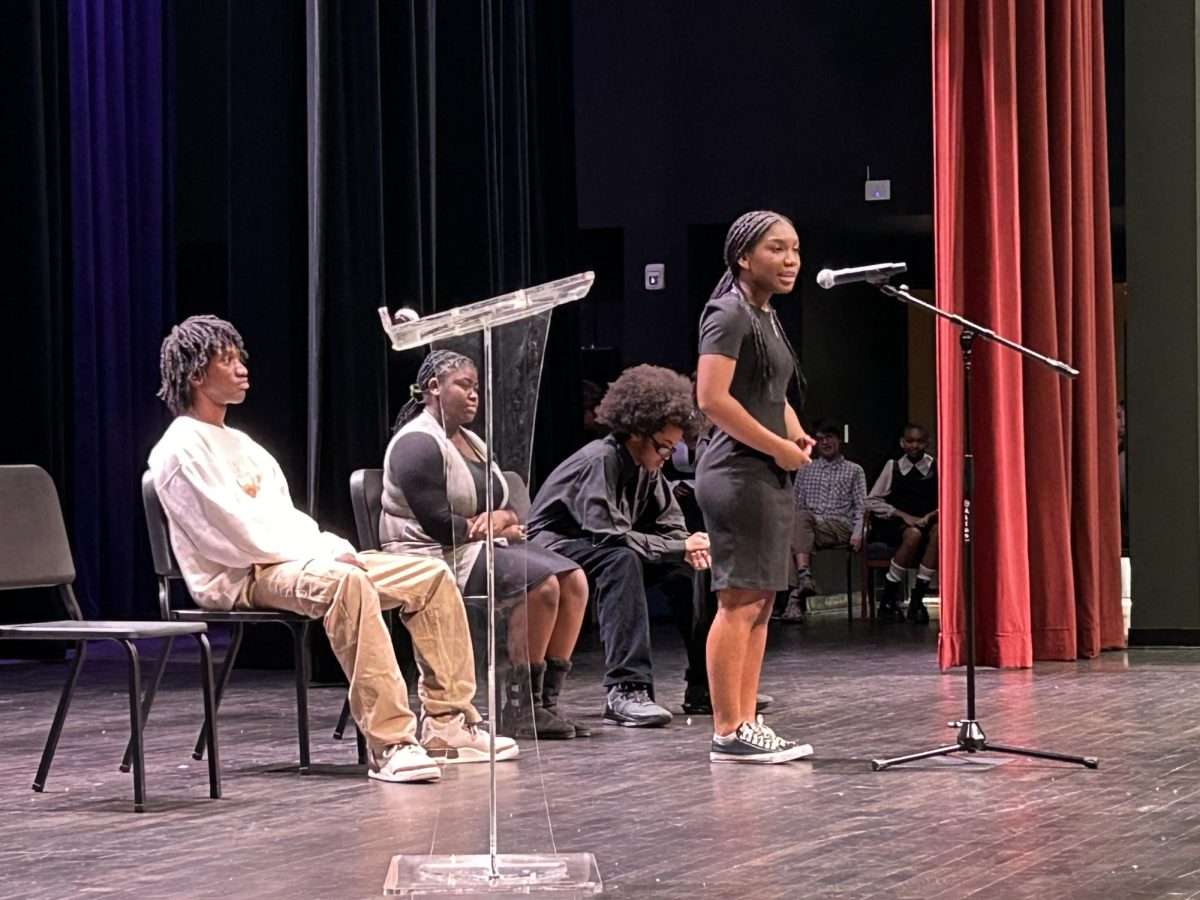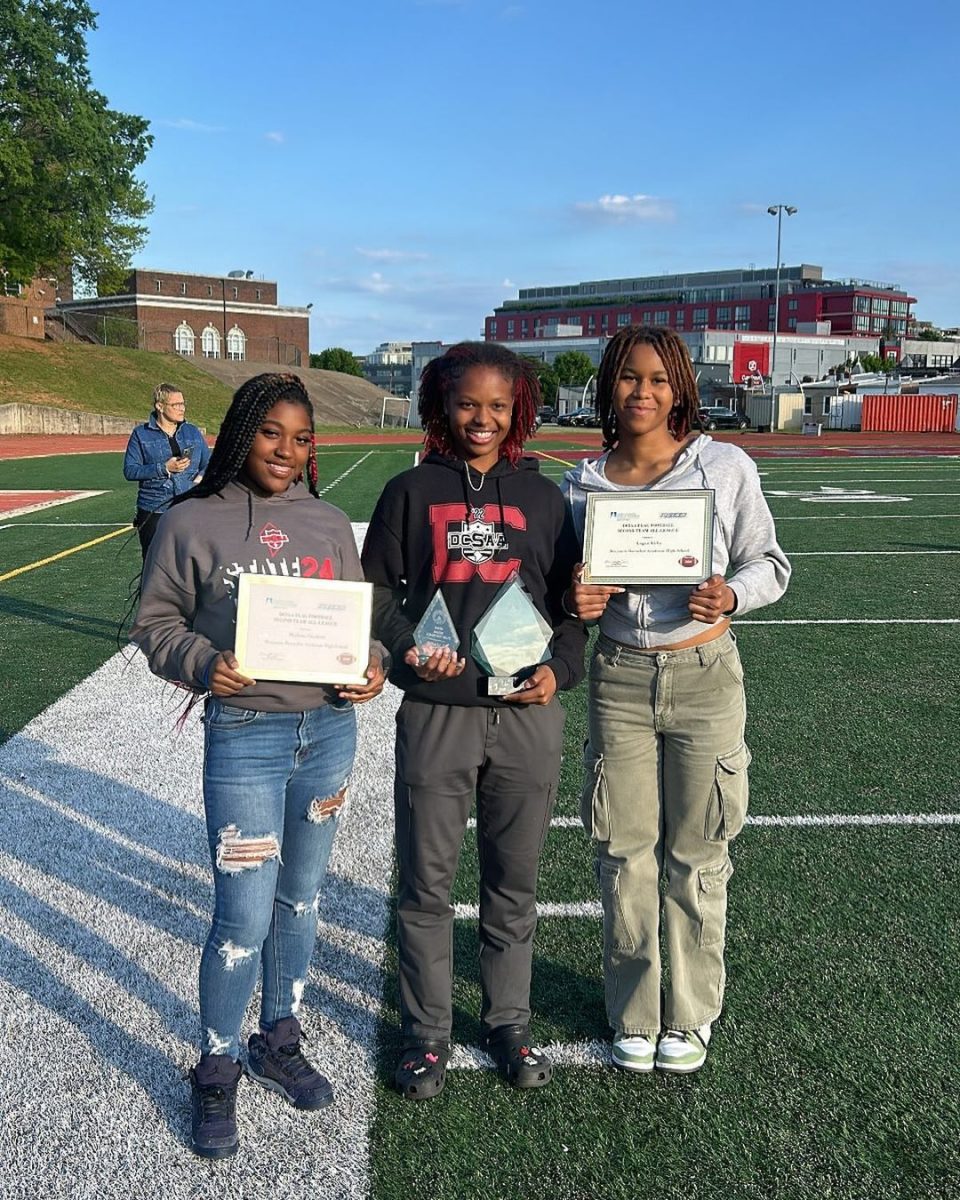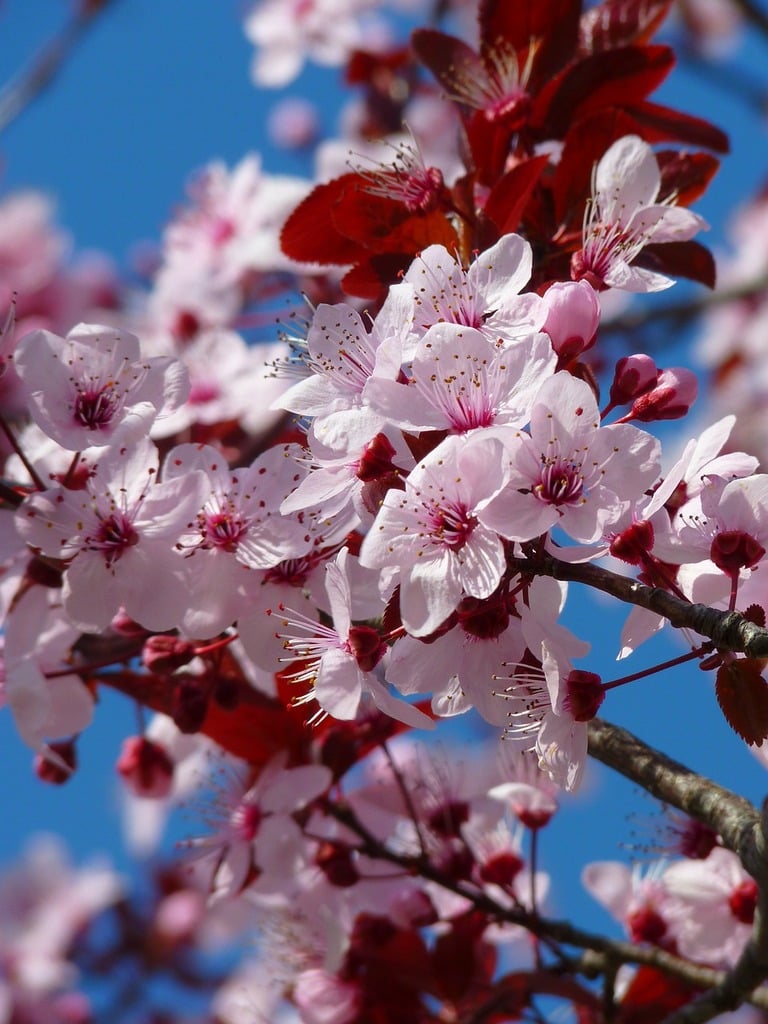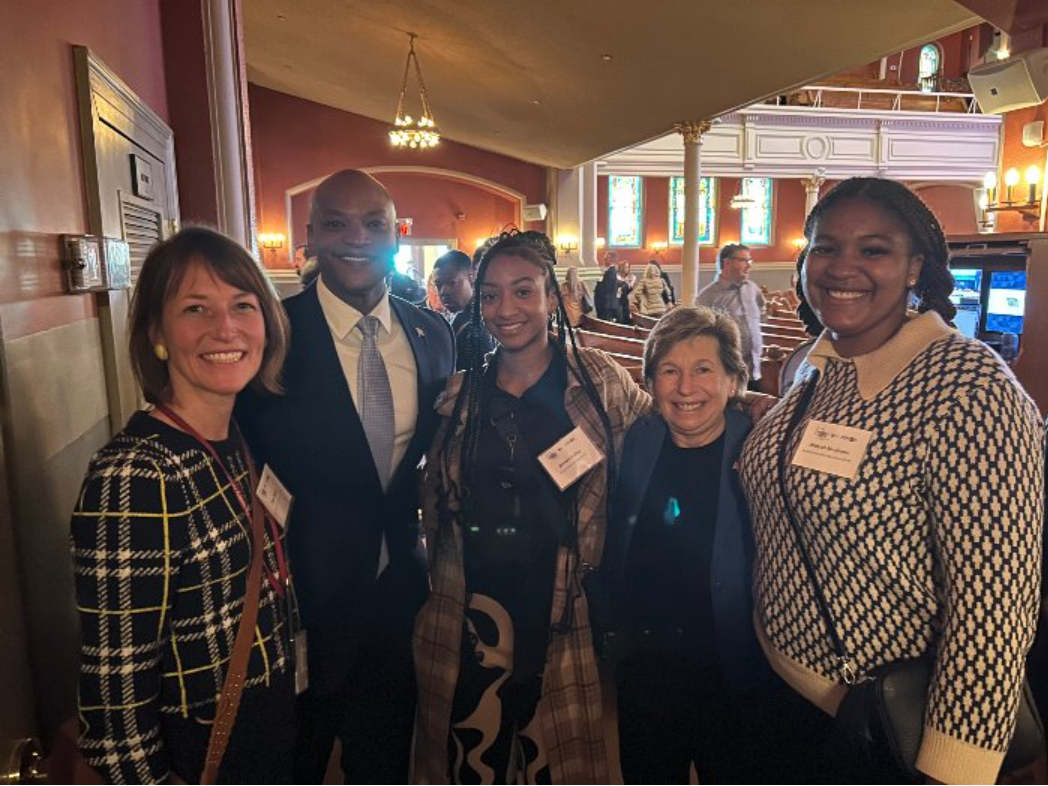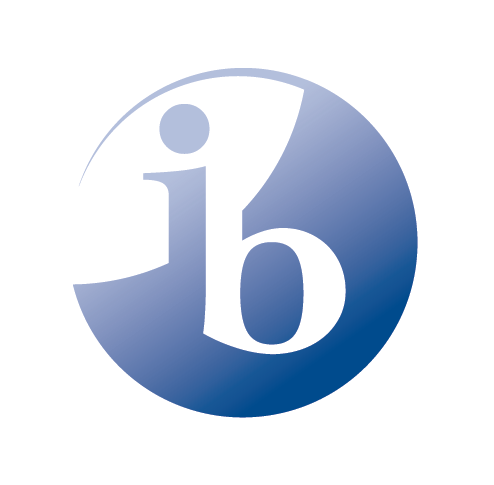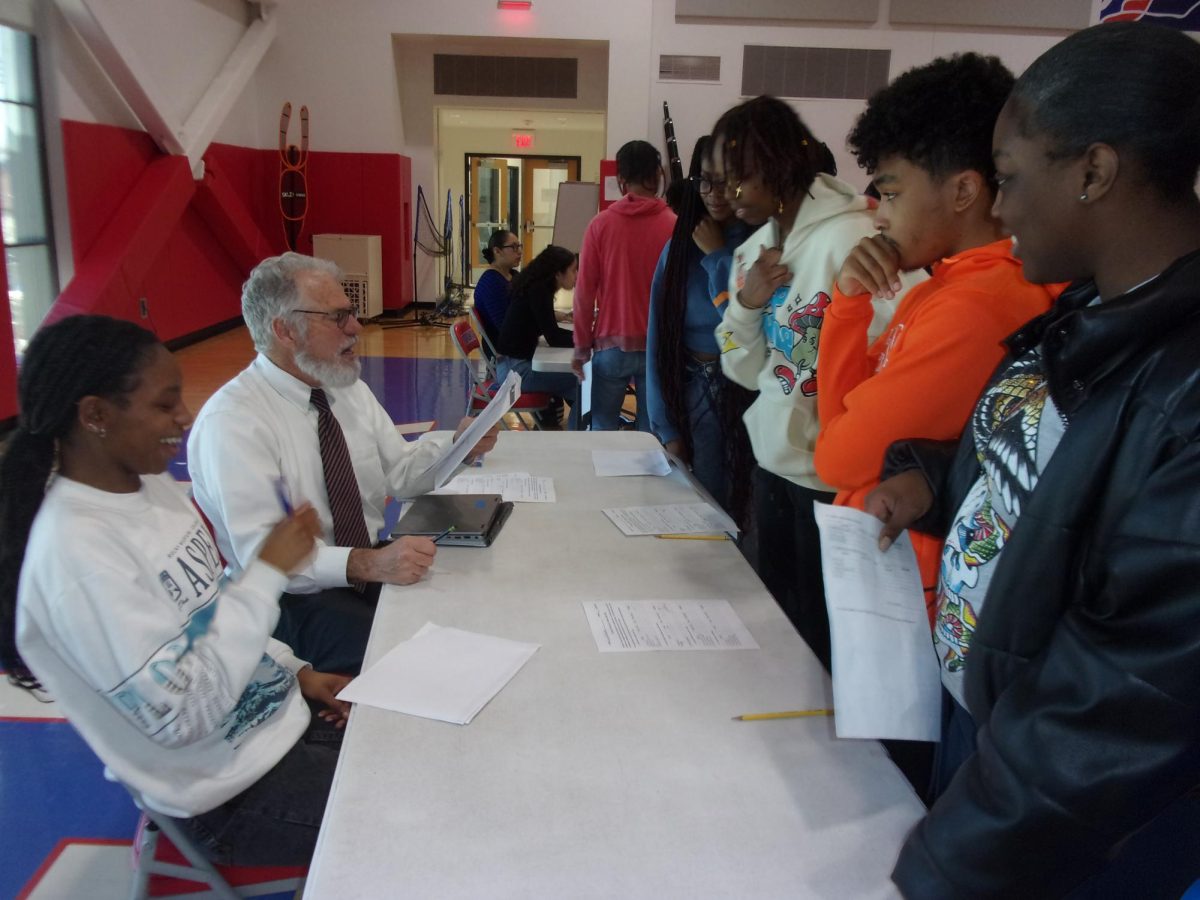On February 1, the 2024 Poetry Out Loud assembly at Banneker was held. A few students from each grade level read out a poem from the Poetry Out Loud website that they had selected and memorized. The first place winner was Nyla Dinkins with the poem “We Are Not Responsible” by Harryette Mullen, and the runner-up was Phoebe Luecke, who recited “Songs for the People” by Francis Ellen Watkins Harper. Both will be going to the district-wide Poetry Out Loud competition to read three memorized poems on March 16.
Out of the twelve schools competing in D.C., only one will advance to the national competition. Whoever wins nationals will earn money for their school’s funding.
According to Dinkens and Luecke, who were interviewed, there isn’t an explicit dress code for the district-wide competition, though they said not to wear a “costume,” so mostly black/professional attire is the safest option, similar to what was worn in the school-wide performances.
The three poems to be recited at district-wide have specific requirements: one that was written before the 19th century, one 25 lines or fewer, and one that fits either or none of these criteria—all of them having been found on the Poetry Out Loud website.
Phoebe said that advancing in the competition is “a really cool honor and … an awesome opportunity.” Dinkins said, “I feel very happy. I think that it was a really good experience for me … it was really eye-opening.”
For Poetry Out Loud, Luecke was looking for a poem 25 lines or fewer and from before the 19th century and chose hers because “I really enjoyed ‘Songs for the people,’ … [and] the story that was embedded in it.”
When choosing her poem, Dinkins said, “I was looking for something that I see myself in … it was the only poem that called to me. And even though at first people were skeptical because it was a bolder choice, I felt like it was the only thing that kept coming back.” She expanded on this when explaining why she was so thankful to Ms. Gilliam: “My family, they had reservations about my poem … And I went to Ms. Gilliam and I was like, ‘I don’t know how I feel about this, because I’ve been getting mixed opinions,’ and she ultimately told me … that I need to pick what resonates with me, what I can tell, what I want to do.”
To decide when to add emphasis to poem recitation, Luecke said it’s helpful “sitting with the poem, analyzing it, trying to figure out what the poem was trying to say.”
For Dinkins, “it’s really subjective to the individual. … I try around different words all the time and I think maybe the strongest words to me … and the ones that tell the most to the story … [are] the overall messages, the ones that help convey that theme.” She says this emphasis can be achieved with things like “a slight change in tone, an increase in volume.”
“Lots of memorization,” Luecke said was necessary for preparing for Poetry Out Loud, “as well as feedback, so practicing in front of people, in front of the mirror, voice recording.” Right before the performance, to help calm nerves, Luecke found it helpful to “dance backstage or sing under my breath … Or shaking my hands, just trying to shake it all out.”
“The more that I recite, the more comfortable I am in the story I’m telling, the more comfortable I am in my ability to tell the story,” Dinkins explained, “then I feel like I will present myself well and I will do it well, because I was so sure in the message that I was sending, and the way that it was going to be received.”
For inspiration, Luecke said “listening to other poets, listening to other poems can help you learn other ways to recite your poetry.”
Nyla personally has had “a strong love for slam poetry,” and said, “I believe that because I have such passion for passionate poetry, I was able to have a glimpse of what that would look like.”
Because “memorization can be tricky,” Luecke thinks that’s the part of the Poetry Out Loud rubric she thinks she’s most susceptible to getting points taken from when she performs.
“Sometimes my timing can either be incredibly on point, or very off,” Dinkins said. “It’s a strength and a weakness because at some times I’m able to correct myself … when I don’t correct myself, I’m either going too fast or I’m not pronouncing something correctly.” She does have a strength she’s sure about: “I think I’m strong in body language … that tells a whole different story besides the words.”
Luecke said that she first became interested in poetry “my freshman year English class, I had a really open project … and I took a shot at poetry, and I really enjoyed what I wrote. … And that’s really where it all started.” Poetry Out Loud has been her first experience reciting poetry, but she said, “I have been a part of speech competitions.”
English had been an interest of Dinkin’s for a while before Poetry Out Loud, especially creative writing, but she said, “Poetry specifically, though, I would say started to become more of an interest for me when I came to Banneker … when we were assigned the Poetry Out Loud competition.” She’d been exposed to public speaking when she did policy debate and theater, “but I never had actually anticipated being as interested in poetry as I am now,” she said.
For Luecke, poetry is more of a “hobby.” She said, “I think it is a great stress reliever as well as just a fun way to express your feelings.”
Dinkins, on the other hand, said “I would like poetry to be a part of my future, and I do believe that, even if it isn’t something specifically about poetry, the things that I’m learning from poetry, like public speaking, how to engage a crowd, eye contact with people … are things that I should and will—hopefully—carry on in whatever occupation or future aspiration.”
Luecke is thankful to the English teachers, her parents, and her friends for supporting her. Dinkins would also like to acknowledge her family for their support, and Ms. Gilliam most of all.

